Common Illnesses and Injuries in Backyard Chickens: How to Keep Them Healthy with a Veterinarian’s Help
Backyard chicken keeping has become increasingly popular over the years.
Many people enjoy raising their own poultry for eggs, meat or as pets.
However, just like any other animal, backyard chickens are prone to illnesses and injuries that can compromise their health.
As a responsible chicken owner, it is essential to know how to identify common illnesses and injuries in your flock and when to seek veterinary assistance.
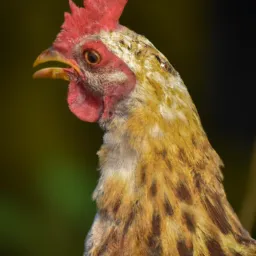
In this blog post, we will discuss some of the most common illnesses and injuries affecting backyard chickens, signs of sickness or injury in chickens, when to call a vet for your chicken, treatment options for sick or injured chickens, and preventative care tips for healthy chickens.
Introduction to Backyard Chickens
Before we delve into the details of common illnesses and injuries in backyard chickens, let us first get acquainted with some basic facts about these birds.
Backyard chickens are domesticated fowl kept primarily for their eggs or meat.
They come in various breeds, each with unique characteristics and traits. Chickens are social animals that thrive in groups called flocks.
A typical backyard flock consists of several hens and one rooster.
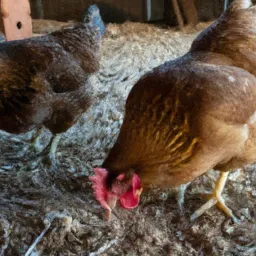
Common Illnesses and Injuries in Backyard Chickens
Chickens can suffer from a wide range of illnesses and injuries, some of which are more prevalent than others.
Here are some of the most common ones:
1. Coccidiosis – This is an intestinal parasite that infects chickens, causing diarrhea, dehydration, and weight loss. It is commonly found in chicks less than six weeks old.
2. Marek’s Disease – This is a viral disease that attacks the nervous system of chickens, leading to paralysis, tremors, and eventual death. It mostly affects young chickens but can also affect adults.
See also Exploring the World of Backyard Chickens: 5 Popular Breeds to Consider
3. Avian Flu – This is a highly contagious respiratory disease caused by influenza viruses. It causes coughing, sneezing, nasal discharge, and reduced egg production.
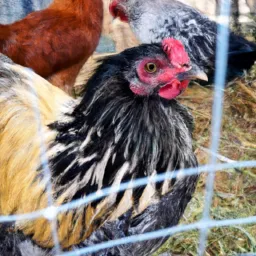
- Fowl Pox – This is a skin disease caused by a virus that results in lesions on the comb, wattles, and eyes. It is not fatal but can be cosmetically unappealing.
5. Bumblefoot – This is a bacterial infection that occurs when chickens stand on hard surfaces for extended periods, resulting in swollen, painful feet.
Signs of Sickness or Injury in Chickens
As a chicken keeper, it is crucial to learn how to recognize signs of sickness or injury in your flock.
Some of the common indicators include:
- Reduced appetite
- Depression
- Lethargy
- Weight loss
- Runny nose or eyes
- Labored breathing
- Soft-shelled or misshapen eggs
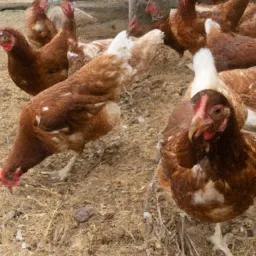
When to Call a Veterinarian for Your Chicken
If you notice any of these symptoms in your chickens, it is best to consult a veterinarian immediately.
Delaying treatment can lead to further complications and even death. Your vet will perform a physical examination, take samples for testing, and prescribe appropriate medication.
Treatment Options for Sick or Injured Chickens
The type of treatment recommended for your chicken will depend on the diagnosis.
Some of the common treatments include:
- Antibiotics for bacterial infections
- Anti-virals for avian flu
- Parasiticides for coccidiosis
Supportive care such as fluid therapy and nutritional supplements
Preventative Care Tips for Healthy Chickens
To keep your chickens healthy, here are some preventative measures you should take:
Provide clean housing and adequate ventilation
Offer balanced feed and freshwater
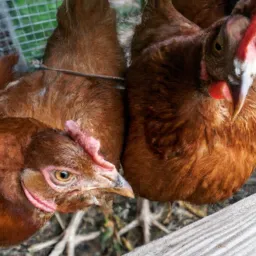
Maintain good sanitation practices
Perform regular health checks
Quarantine new additions before introducing them to the flock.
Keeping backyard chickens can be rewarding, but it comes with its fair share of responsibilities.
See also Chicken Enrichment 101: Make Your Own DIY Toys for a Healthier, Happier Flock
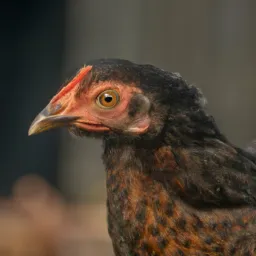
By learning how to identify common illnesses and injuries in your flock, knowing when to call a vet, and implementing preventative care measures, you can help ensure the health and well-being of your poultry.
